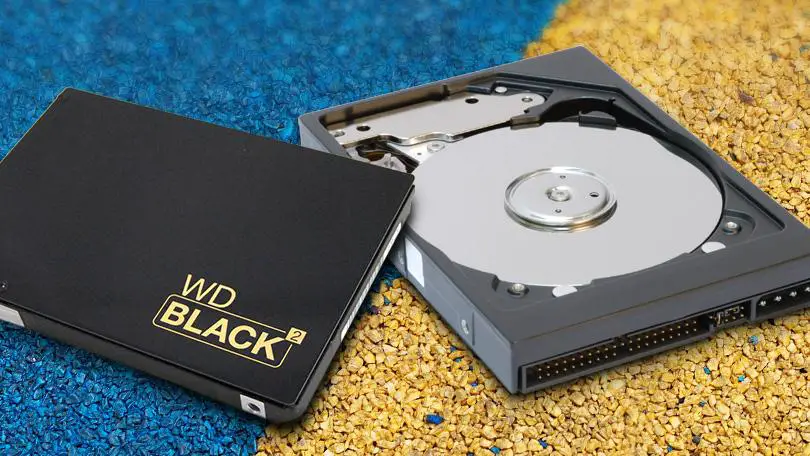On January 1, to herald the new year, Digital Trends wrote a compelling article with a showpiece title: “The battle between SSD and HDD is over, and the winner is clear.”

Across several hundred words writer Brendan Hesse scored both and mounted a strong argument to dissuade anyone from going with a Hard Disk drive over a Solid State Drive. For performance, storage, efficiency and other factors, SSD is the way forward. Even long-held pros such as pricing are being negated with the gap between HDD and SSD reducing.
What exactly is the difference?
A ‘traditional’ hard drive normally consists of a metal platter with a magnetic coating specifically designed to hold data; when the plate is spun, the information – video, audio, written or recorded – is easily accessed or written.
Meanwhile an SSD drive doesn’t move – there’s no rotation here. Instead a series of interconnected flash chips retain data, even without a direct power supply. This means that they can be accessed without the need for external power, through a flash drive or permanent installation on a PC/Mac drive. This, plus its adaptability, means that a flash drive can be far smaller and specifically shaped than the HDD and its metal platters. That comes with added cost.
SSD is faster than HDD
However, the cost confers additional stability and efficiency. HDDs are slower, both in the initial operation and during their actual usage. They also suffer from something called fragmentation; because the blocks of information are physically read in a set path in one direction, heavily filled drives can sometimes suffer as information is spread across them. This leads to slower operating speeds. Compare that to an SSD where information is distributed across chips that can be stored in any configuration – and therefore does not suffer from degraded performance as it fills. There are also differences in noise and durability in the two drive types.
SSDs are newer than HDDs, which still proliferate in many home computers – but the tide is turning. PC Mag states that “the product lists from Western Digital, Toshiba, Seagate, Samsung, and Hitachi are still skewed in favor of hard drive models over SSDs. For PCs and Mac desktops, internal hard drives won’t be going away completely, at least for the next couple of years.”
There’s an extensive analysis of the technical details between the two on Quora, where most contributors seem to be devotees of SSD. Yes, it is more costly, but the overall operation and faster read/write performance somewhat negates this. At least one writer suggests that SSD is safer, since the lack of moving parts reduces the chance (albeit not completely) of wear and tear. SSD, without the need for external power, are also greener and therefore better for the environment.
For this reason, many remote host companies are promoting VPS SSD, because of the multiple benefits they can offer their clients. That, plus the security levels and mostly-affordable prices, make them an attractive proposition for SMEs in particular, although as we’ve already seen several technology giants are retaining hard drives for the foreseeable future. There are perhaps parallels with music industry, where the old moving technology of records and cassettes and CDs are still liked by some and fondly remembered by many – but their disadvantages are still plain to see.
[Image via: Google Images]

I know that SSDs are pushing others out. I’ve got a Macbook with an SSD and I have to say that I like my older Mac that doesn’t have it better. This one seems to run a LOT hotter and freezes or has issues more often. Maybe it’s just the one I have but it’s enough of an issue that I’m thinking of moving off Apples to another brand. 🙂